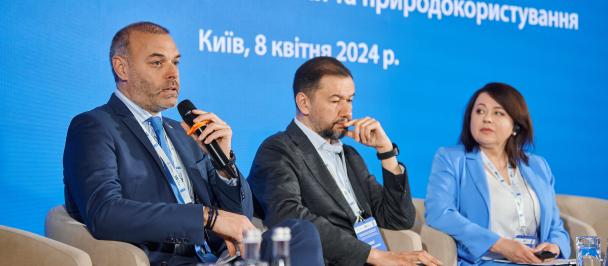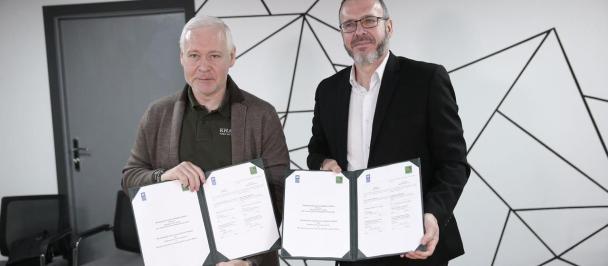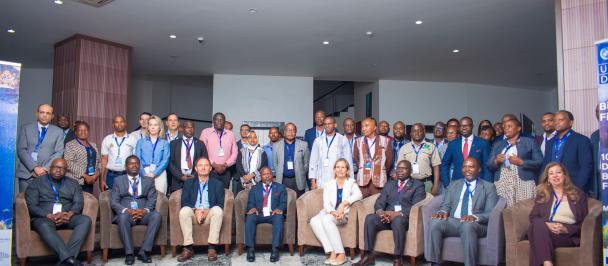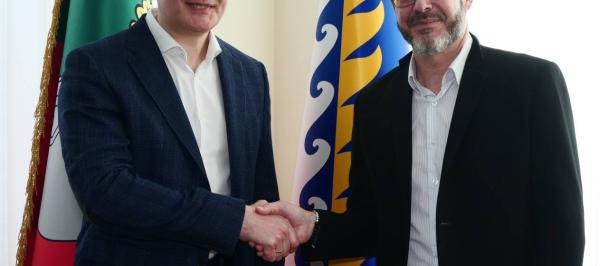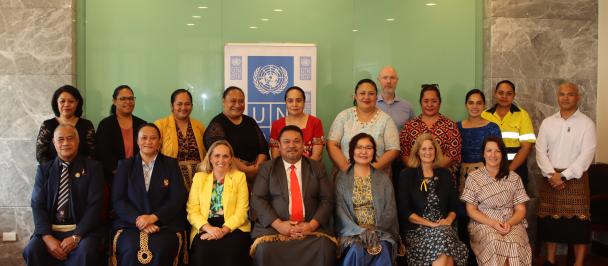Stockholm+50 Thailand National Consultations elicit challenges and opportunities towards environmental sustainability
June 3, 2022
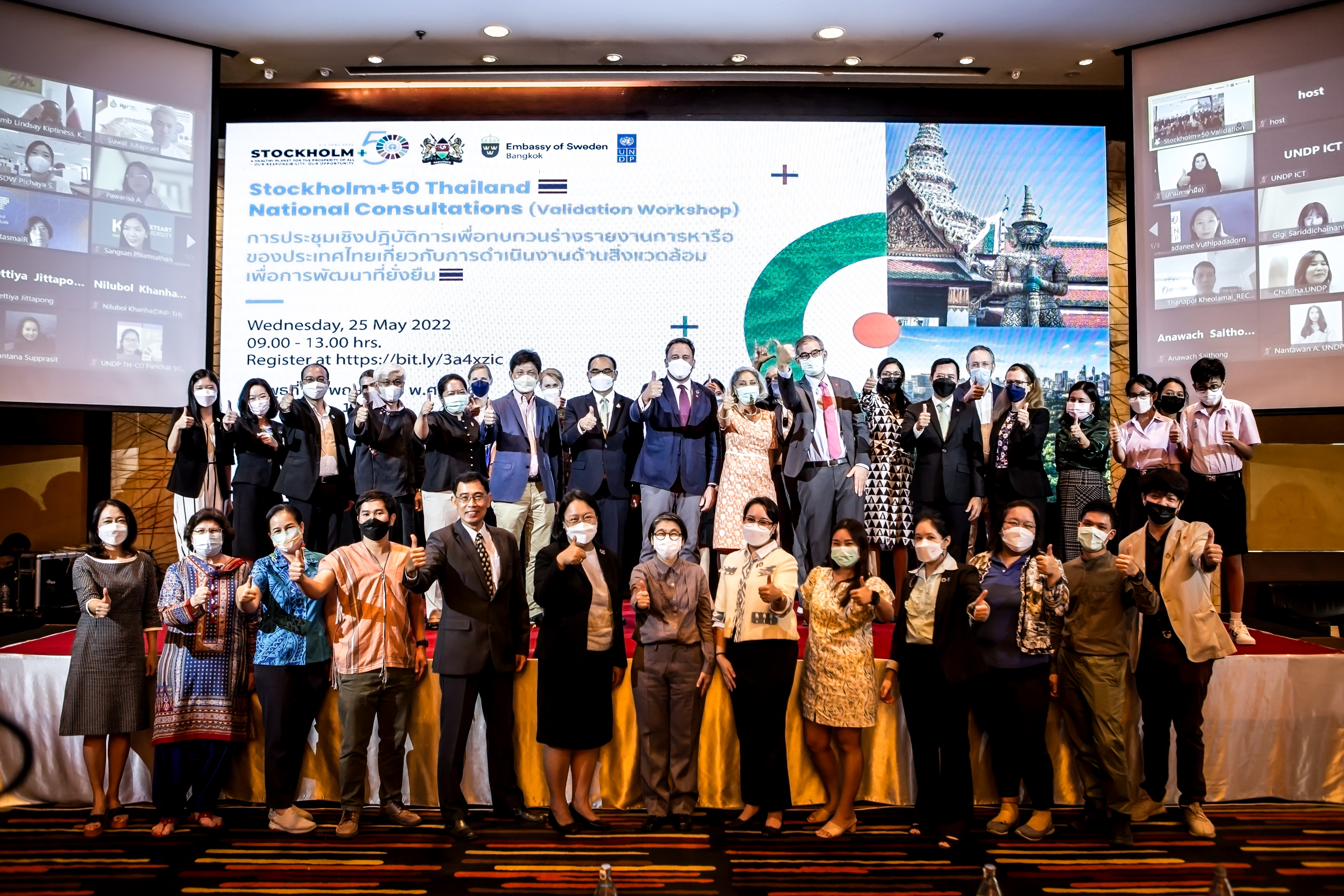
Validation workshop for Stockholm +50 Thailand National Consultation in Bangkok.
Bangkok, 3 June 2022, The UN Development Programme (UNDP) jointly with the Embassy of Sweden, the Embassy of Kenya, in cooperation with Thailand’s Ministry of Natural Resources and Environment (MoNRE) convened more than 130 participants representing government, civil society, private sector, academia, international organizations to review and discuss the key findings coming out of the Stockholm+50 national consultations in Thailand.
Thailand’s national consultations took place between March-May 2022 and were initially launched in Bangkok, followed by discussions in Chiang Mai and Phang Nga provinces to ensure diversity of views and perspectives, culminating at the validation workshop in Bangkok on the 25th of May 2022.
The objective of these consultations were to identify lessons, recommendations and actions needed to deliver sustainable development to Thailand. The issues of climate change, biodiversity, and sustainability have had, and will continue to have, severe and lasting impacts on our environment, as well as the country’s economic and social development.
“The UN system as a whole is committed to protect and promote open civic spaces that are essential to progress on the SDGs and Thailand’s future as a prosperous and inclusive society. At the Stockholm+50 conference, I look forward to speaking directly to Thailand’s priorities leveraging the UN development system for sustainable consumption and production, focusing on experiences in resource efficiency and the circular economy, how we can utilize science and technology effectively, and develop the green economy,” said Gita Sabharwal, UN Resident Coordinator in Thailand.
As part of the consultations, a series of activities were implemented including youth dialogues, online survey, and communications through UNDP’s SparkBlue online community engagement platforms as well as traditional social media channels. Findings will be reflected in a national consultation report to inform the Stockholm+50 international meeting as well as to support post-Stockholm+50 implementation.
“Some of the ideas raised in the national consultations here in Thailand such as the importance of education involving local communities as well as the youth and the need to rethink business models have also been very important in my country’s journey towards sustainability. I really look forward to the findings and recommendations and I hope that this will serve not only as a basis for Stockholm +50 but also for future political dialogue with Thailand,” said H.E. Mr. Jon Åström Gröndahl, Ambassador of Sweden to Thailand.
“The Stockholm+50 national consultations report in Thailand has reflected the opportunity for the whole-of-society and whole-of-government to elicit their perspectives on environmental challenges and partnership opportunities, as well as to identify solutions and recommendations to cope with global environmental crises and accelerate SDG implementation in post-pandemic recovery.” says Dr. Pinsak Suraswadi, Deputy Permanent Secretary of Thailand’s Ministry of Natural Resources and Environment, in his keynote address.
Several key messages identified in the draft report include the following:
- The reasons to (re)connect with nature are two-fold: its positive association with enhanced socio-economic performance and human wellbeing, and pro-environmental attitudes and behaviors.
- The Sufficiency Economy Philosophy (SEP) is Thailand’s core approach toward sustainable development, creating a positive impact on building resilience and self-immunity of people and communities particularly during crises, leading the society toward sustainability transitions.
- A sustainable and green finance ecosystem, notably the ESG (environmental, social, and governance) and sustainability bonds, has been introduced to help reduce financial risks stemming from climate change, forest resource depletion, environmental degradation, and social issues.
- For vulnerable and marginalized people, as well as local communities often employed in agriculture and services sectors, an important means of strengthening their capability and skills, particularly to achieve an inclusive and sustainable recovery from the COVID-19 pandemic, is to apply local wisdom, tested knowledge and understanding, and appropriate technology.
- Key enabling environment for delivery commitments on the ground includes: provision of evidence-based policy advice; building capacity of local stakeholders (including marginalized and vulnerable groups); promoting policy research and knowledge networks; measures for aligning public, private and development finance with existing commitments and priorities; and, engaging in dialogues and partnerships across development sectors and administrative levels.
- Many of Thailand’s businesses and industries have delivered on their commitment to integrating the Sustainable Development Goals (SDGs) into business strategies, while prioritizing clean energy and high-value bio-based or “S-curve” industries, supporting government efforts in line with the Bio-Circular-Green Economic (BCG) model. The BCG model capitalizes the country’s strengths in biological diversity and cultural richness and employs technology and innovation to transform Thailand to a value-based and innovation-driven economy.
The final report can be accessed here.
Key findings from the report will contribute towards the high-level leadership dialogue discussions at the Stockholm +50 international meeting being held in Sweden from 2-3 June.
###
NOTES TO EDITORS
About Stockholm+50:
An international meeting, Stockholm+50 is convened by the United Nations and is hosted by Sweden with support from the Government of Kenya will be held in Stockholm, Sweden from 2-3 June 2022 to commemorate 50 years of the international conference on human environment held in Stockholm in 1972, which made the environment a pressing global issue for the first time. The international meeting aims at addressing global environmental action by recognizing the importance of multilateralism in tackling the Earth’s triple planetary crisis related to climate change, nature and biodiversity loss, and pollution and waste management. Under the theme “Stockholm+50: a healthy planet for the prosperity of all – our responsibility, our opportunity,” the Stockholm+50 aims to accelerate the implementation of the UN Decade of Action to deliver the Sustainable Development Goals (SDGs), including the 2030 Agenda, the Paris Agreement on climate change, the post-2020 global Biodiversity Framework, and encourage the adoption of green post-COVID-19 recovery plans.
Learn more: https://www.stockholm50.global/
About the United Nations Development Programme (UNDP):
UNDP is the leading United Nations organization fighting to end the injustice of poverty, inequality, and climate change. Working with our broad network of experts and partners in 170 countries, we help nations to build integrated, lasting solutions for people and planet. Learn more at http://www.undp.org/thailand or follow us at @UNDPThailand.
MEDIA CONTACTS:
UNDP Thailand:
Kesrat Sukasam, Integrated Team Leader, kesrat.sukasam@undp.org
Ampai Harakunarak, National Coordinator for Stockholm +50, ampai.harakunarak@undp.org
Wadee Deeprawat, Communications and Outreach Specialist, wadee.deeprawat@undp.org
Embassy of Sweden:
Lina Eidmark, Counsellor, lina.eidmark@gov.se
The Thai version press release can be accessed here

 Locations
Locations